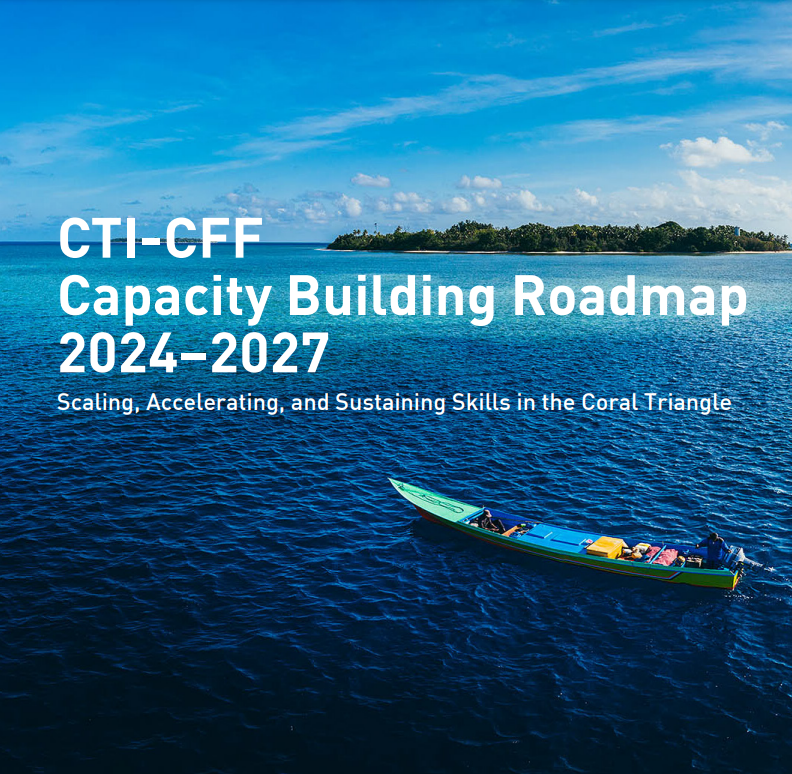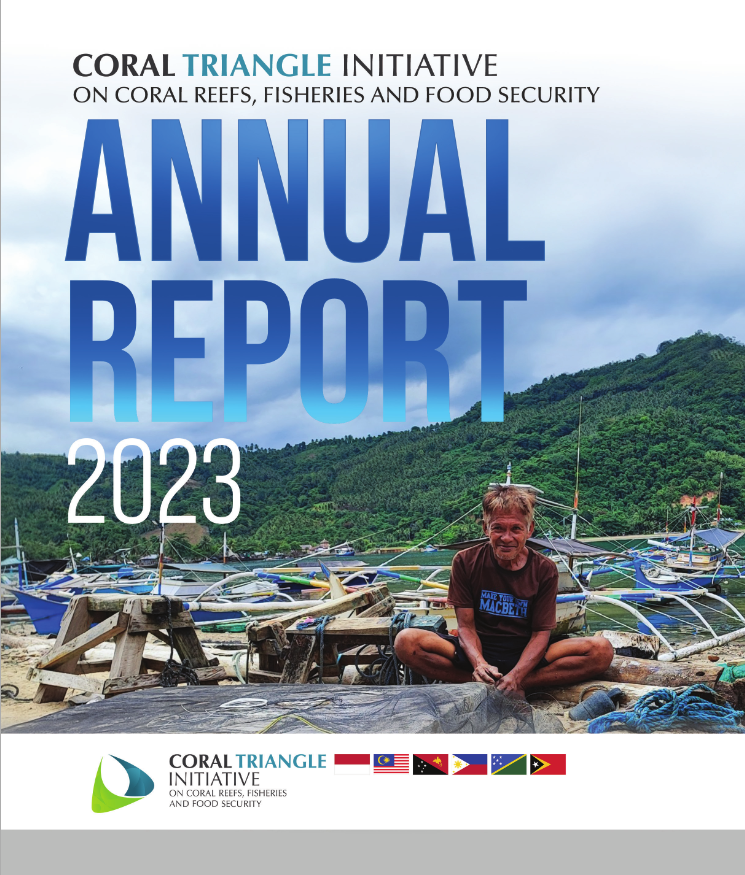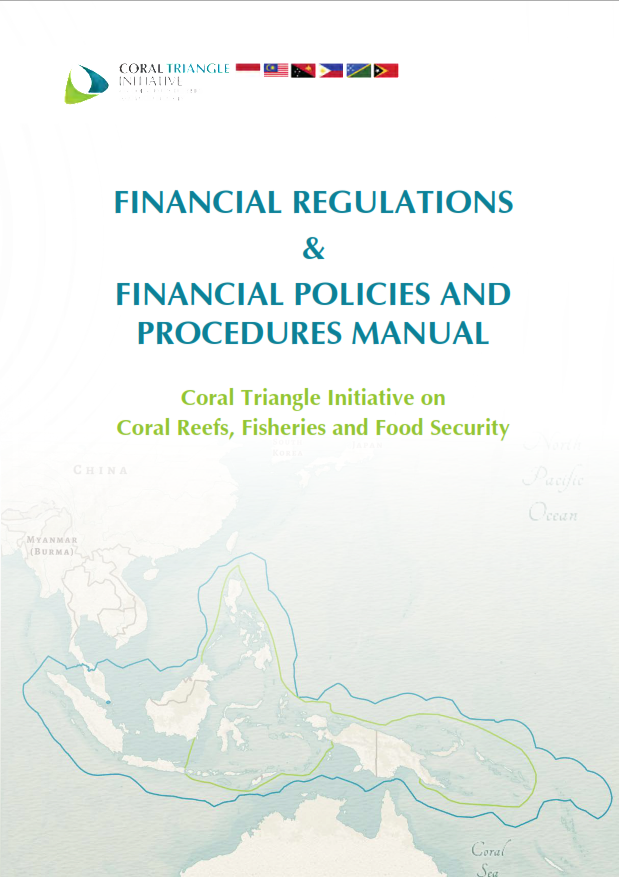Press Release: Marine conservation advocates from CT6 countries join #plasticresistance movement to celebrate Coral Triangle Day
# Based on a 2014 report, scientists from US, France, Chile, Australia, and New Zealand calculated that more than 5 trillion plastic pieces weighing over 250,000 tons are floating around in our oceans.
# Aware of the grave impact of plastic in marine life as well as to human health, various marine conservation groups and organizations from Coral Triangle member countries have shown their support to the #plasticresistance movement to help celebrate Coral Triangle Day.
# To learn how you can join the #plasticresistance movement and protect the Coral Triangle region from plastic pollution, visit www. coraltriangleday.org.
Manado, Indonesia 7 June 2018 – Plastic pollution have worsened through the years. Based on a 2014 report, scientists from US, France, Chile, Australia, and New Zealand calculated that more than 5 trillion plastic pieces weighing over 250,000 tons are floating around in our oceans. Marine animals living in and around the water can ingest these pieces of plastic. Chemicals released by these microplastics can pose harm to fish and the people who consume fish.
Aware of the grave impact of plastic in marine life as well as to human health, various marine conservation groups and organizations from Coral Triangle member countries have shown their support to the #plasticresistance movement to help celebrate Coral Triangle Day.
In Indonesia, the No Trash Triangle Initiative, an NGO advocating for the protection of the ocean from plastic pollution, has conducted an education and cleanup activity among school children and community in Lihunu, Bangka Island as a prelude to the celebration of Coral Triangle Day. Particularly, the children were informed about the impact of plastic pollution in the ocean and the ways to reduce, reuse, and recycle plastics. The No Trash Triangle Initiative also plans to mobilize students and volunteers to undertake cleanup activities in the surrounding neighborhoods and beach of Malalayang, South of Manado on June 9.
The group from the Sustainable Ecosystems Advanced Project will have an “Ocean Story” Photo Story Contest that invites marine and photography enthusiasts to send their best ocean and coastal images with a short story (80-15 words) as a way to celebrate the beauty of ocean and the importance of protecting it and its abundant resources.
On the other hand, WWF in partnership with the Coral Triangle Initiative on Coral Reefs, Fisheries, and Food Security (CTI-CFF) Regional Secretariat continues to run the #plasticresistance Instagram Contest that encourages users to show how they are helping cut out single-use plastics by tagging their photo or video with #plasticresistance and #coraltriangle.
In Papua New Guinea, the Japan International Cooperation Agency (JICA), Papua New Guinea Conservation and Environment Protection Authority and the National Capital District Commission have organized a beach cleanup activity in Elevala Village. Likewise, the National CTI-CFF Coordinating Committee will conduct beach cleanup, turtle tagging and release as well as awareness campaign on plastic pollution to celebrate CT Day in a coastal village on 21 or 22 June. They are also planning to conduct school awareness roll-out program on plastic pollution up till November 2018. Also, to support advocacy on plastic pollution, the Ministry of Environment and Conservation and Climate Change has banned import, manufacturing and selling/use of shopping bag based on Environment Act 2000.
In the Philippines, the National CTI-CFF Coordinating Committee has lined up beach cleanup activity and film showing as part of their activity. For the film showing, they will be inviting student leaders from different universities in Metro Manila to see “A Plastic Ocean,” a documentary about the shocking impact of plastic on oceans and the marine animals.
In Solomon Islands, the Ministries of Fisheries and Marine Resources and Environment, Climate Change, Disaster Management & Meteorology are leading the celebration by collaborating with various development organizations and local government. Particularly, the government will lead the cleanup activity along the Botanical Garden stream and Rove seafront in West Honiara. Other activities include cultural dances and shows, film showings, tree planting, school awareness and demonstration of waste compost and the likes.
To learn how you can join the #plasticresistance movement and protect the Coral Triangle region from plastic pollution, visit www.coraltriangleday.org
-end-
About CTI-CFF
The Coral Triangle Initiative on Coral Reefs, Fisheries, and Food Security (CTI -CFF) is a multilateral partnership of six countries: Indonesia, Malaysia, Papua New Guinea, the Philippines, Solomon Islands, and Timor-Leste (CT6). The CT6 countries work together to preserve marine and coastal resources, and focus on critical key issues such as food security, climate change, and marine biodiversity. The CTI-CFF was established formally during the Leaders’ Summit in 2009 with approval of the leaders from the CT6 countries. They adopted the CTI Regional Plan of Action (CTI RPOA) which is a strategic action plan with five goals: (1) designation of effectively managed seascapes; (2) application of an ecosystem approach to fisheries management; (3) establishment of a fully functional marine protected area system; (4) strengthening climate change adaption and resilience; and (5) improving the status of threatened marine species.
About Regional Secretariat
The Regional Secretariat (RS) of the CTI-CFF is mandated to promote regional cooperation, knowledge sharing, and learning facilities within the six member countries of the Coral Triangle. The RS coordinates and monitors the progress of the implementation of the Regional Plan of Action (RPOA) goals. The RS coordinates and supports official meetings and events linked to the CTI-CFF process, including cross-cutting services in support of monitoring and evaluation, financial coordination, information management and outreach. It also coordinates the implementation of CTI-CFF RPOA and provides support to, and coordination with, NCCs, including advising the CTI-CSO on emerging opportunities and priorities to reaching the goals and targets of the RPOA. The RS also acts as the channel of communication and information sharing and foster networking among the Parties, CTI Partners and other organizations and donors in the efforts to promote the objectives of the CTI-CFF. The Regional Secretariat is currently based in Manado, North Sulawesi, Indonesia.
###
Media Contact:
- Janet Rosalie Anne H. Polita
- Communication & Information Manager CTI-CFF Regional Secretariat
- www.coraltriangleinitiative.org
- jpolita@cticff.org



